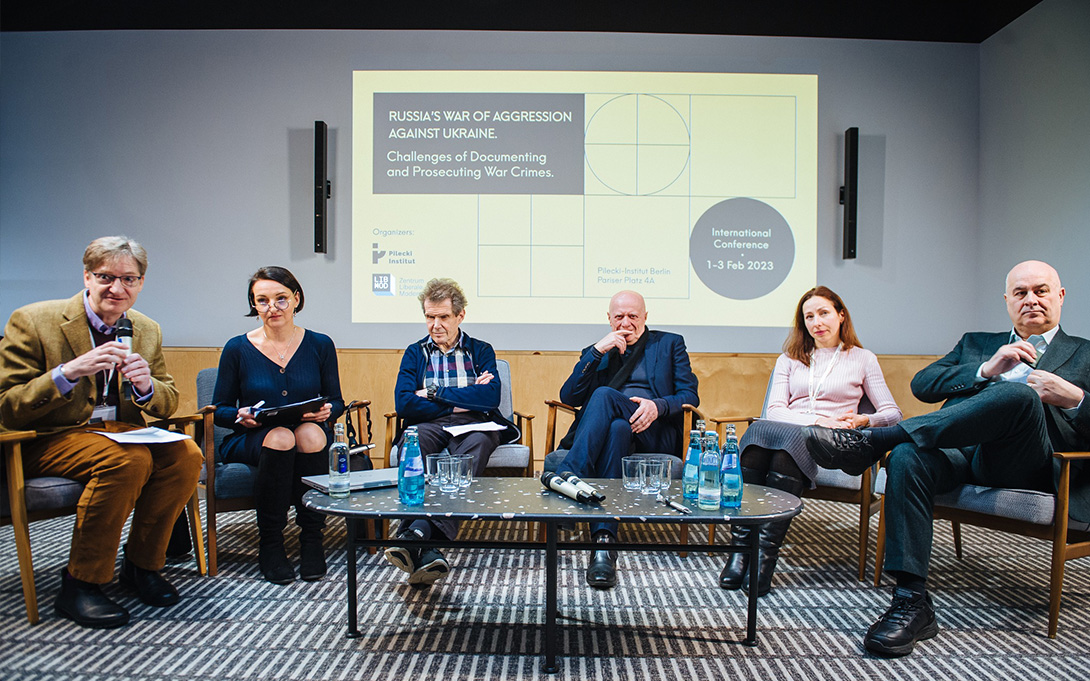
As the war in Ukraine approaches its one-year mark, legal scholars, historians, politicians, diplomats, civil society activists and intellectuals from Ukraine, Germany, Poland, the U.S., and the U.K. gathered in Berlin to address the issues of the Russian aggression against the country and challenges of prosecuting and documenting war crimes.
Kseniya Yurtayeva, an associate professor in the Department of Criminal Law and Criminology at Kharkiv National University of Internal Affairs, is a visiting scholar at the University of Michigan, working out of the Ford School’s Weiser Diplomacy Center. At the panel “Challenges in documenting war crimes in Ukraine”, she presented her report which looks at engaging post-truth theory in examining Russian war crimes.
Yurtayeva showed that certain categories of Russian war crimes in Ukraine had been presented by Russian officials and media as “accomplishments” of what they call the “special operation”, despite their violation of internationally recognized legal concepts, undermining the criminal justice system, and subverting collective consciousness and historical memory. Yurtayeva also addressed the impediments the Russian information creates to achieving post-war justice.
Other speakers elucidated on witness accounts and other evidence-gathering of alleged Russian war crimes, which are both a historical record and can serve as evidence in future post-war trials.
The conference was organized by the Polish Pilecki Institute in cooperation with Zentrum Liberale Moderne.
The Weiser Center for Europe and Eurasia is helping to support Ukrainian scholars who are not currently able to safely conduct their research in Ukraine because of the ongoing war with Russia. The Ford School's Weiser Diplomacy Center is among the University units that are hosting the scholars. While at the Ford School, Kseniya Yurtayeva is working on her research project “Cyberaggression as a method applied in contemporary warfare."
More news from the Ford School